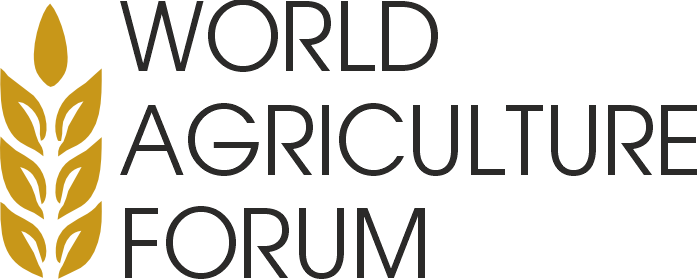Welcome to World Agriculture Forum


Welcome to World Agriculture Forum
Agriculture, the bedrock of human civilization, has undergone a profound metamorphosis from subsistence-based practices to a dynamic economic powerhouse. In recent decades, globalization and technological advancements have accelerated this evolution, driving agriculture toward unprecedented innovation and precision. However, the escalating pressures burgeoning population, climate change, dwindling resources, and increasing disposable incomes have placed the global agricultural sector under immense strain, necessitating a paradigm shift in its approach.
Agriculture is the mainstay of the economies of two-thirds of the world, with the majority of Asian and African countries still dependent on the agricultural sector to support the livelihoods of vast populations. The global agriculture industry is valued at just over $5 trillion, with food being the third-largest traded item, accounting for $1.80 trillion. Asia is experiencing the highest growth in agricultural trade at 8.1%, while Africa is expected to drive the future growth.
Although Europe is the largest importer of many agricultural products, it is also among the leading suppliers of dairy and horticultural products. Currently, Africa imports almost everything but holds the potential to emerge as a major exporter of agricultural produce in the future. The United States, Brazil, the Netherlands, China, India, Japan, and Thailand are among the leading producers and top exporters of numerous agricultural commodities. Increased collaboration among nations will significantly accelerate agricultural growth, benefiting the entire world.
The emergence of digital technologies and e-commerce have presented farmers and agribusinesses with an unparalleled opportunity to accelerate growth, expand markets, and enhance competitiveness. While developed nations have ascended the nutrition, and health value chain, the developing countries continue to grapple with formidable challenges in agricultural production, food security, and farmers' issues. These challenges, in light of the climate change, call for the urgent need for cooperation and collective global actions.
The confluence of globalization, trade, agribusiness growth, and digital innovation has amplified both opportunities and challenges in the sector. This underscores the need for a dynamic platform that brings together key stakeholders to facilitate the exchange of ideas and innovations, setting policy agenda and direction, and fostering cooperation and collaboration to address key challenges and maximize global opportunities.
To address these pressing global agricultural challenges, the World Agriculture Forum (WAF) was conceived during the Global Agriculture Summit in 2017 in New Delhi and further discussed at the World Food Summit in Des Moines in 2018. WAF was envisioned as a neutral, global platform for nations, industries, experts, and institutions to converge, collaborate, and drive sustainable agricultural development. Its goal is to foster a culture of innovation, inclusivity, and collective problem-solving through policy agenda and the power of trade, technology and markets.
After extensive and in-depth consultations with experts and global leaders, a consensus was reached to establish the World Agriculture Forum, modelled on the pattern of the World Economic Forum, to address the pressing needs and opportunities within the agricultural sector, and unleash the potential of the sector.